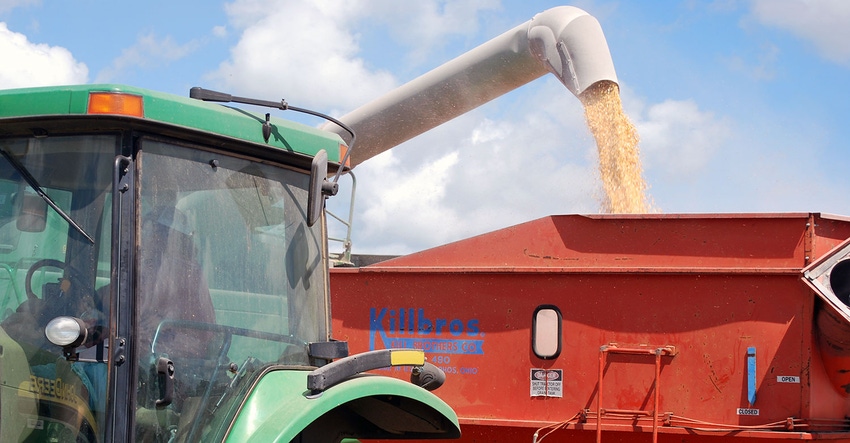October 20, 2021

High energy costs and wet weather have delayed the harvest of what is expected to be a record corn crop for the state. To preserve yield and quality, a University of Kentucky agricultural engineer is recommending producers consider harvesting and mechanically drying corn still left in the field.
“Wet weather and higher energy costs certainly have the potential to squeeze producers’ profits, especially if additional wet weather further delays harvest and losses climb above the average of 5%,” said Sam McNeill, agricultural engineer in the UK College of Agriculture, Food and Environment. “Even with this season’s high energy prices, most producers could benefit from heated air drying their crop by at least five moisture points.”
The National Agricultural Statistics Service is projecting Kentucky corn producers will harvest 268 million bushels this fall with average yields around 185 bushels per acre. If these production levels are realized, it would make the 2021 crop the largest on record.
McNeill calculated yields of 150, 200 and 250 bushels per acre by current corn prices of $5 a bushel and projected harvest losses of 2%, 5% and 8%. He then compared them to the costs associated with heated air drying the corn by five and 10 moisture points using current energy prices and average dryer efficiency. He found that producers can expect returns from drying the corn at least five moisture points if they anticipate their harvest losses will be 5% or greater. Gains from drying the crop by five points could range from $6 to $48 per acre, depending on yield when all costs are considered.
“This range of values is anticipated this season, but producers can use their own values to quickly estimate a meaningful comparison for their operation,” McNeill said. “The value and satisfaction of knowing the crop is safely out of the field depends on individual operations.”
Source: University of Kentucky, which is solely responsible for the information provided and is wholly owned by the source. Informa Business Media and all its subsidiaries are not responsible for any of the content contained in this information asset.
About the Author(s)
You May Also Like




